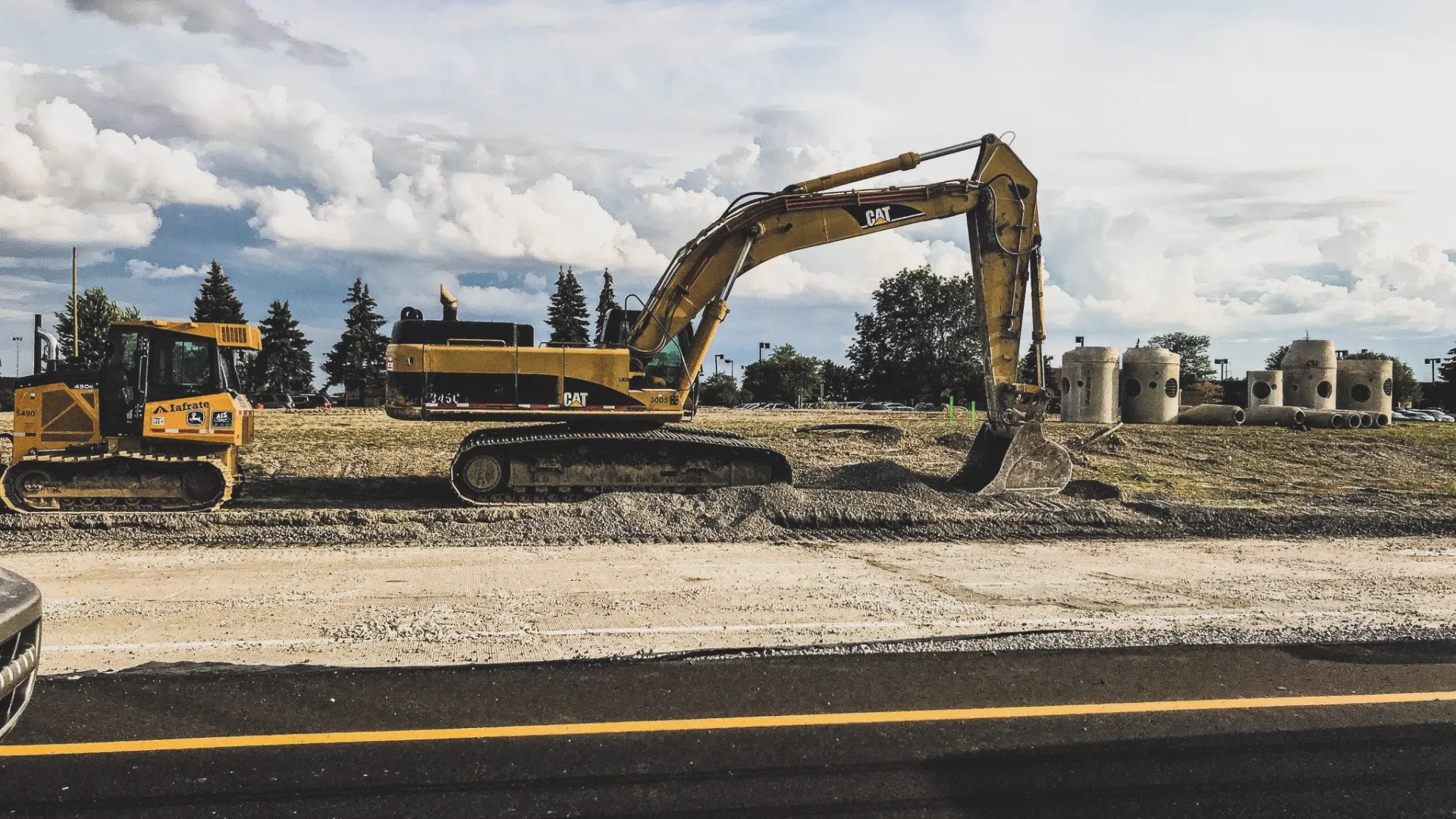
Prevailing Wages Explained
What Are They And Why Are They Important?
Prevailing Wages Explained
In the ever-changing landscape of employment law, staying in compliance can often feel like a Herculean task. At eMars, we strive to make this process as simple and worry-free as possible with our product - The Compliant Client.
Designed with modern businesses in mind, The Compliant Client ensures that companies comply with the Davis-Bacon Act and the demands of certified payroll. This helps create a fair and equitable work environment and protects businesses from potential legal pitfalls.
Overview of the Davis-Bacon Act
Established in 1931, the Davis-Bacon Act represents a cornerstone of US employment law. It mandates that contractors and subcontractors working on federally funded or assisted construction contracts must pay their laborers and mechanics no less than the locally prevailing wages and fringe benefits for corresponding work on similar projects in the area. The Act applies to all construction, alteration, or repair work, including painting and decorating of public buildings or public works.
Failure to comply with the Davis-Bacon Act can lead to severe consequences, such as financial penalties, contract termination, and potential future contract debarments. This underlines the importance of contractors staying compliant, ensuring fair payment for their workers and protecting their business interests.
The Significance of Prevailing Wage Laws
Prevailing wage laws, like the Davis-Bacon Act, play a vital role in promoting fair competition, protecting workers' rights, and preserving local wage standards. By setting a wage floor based on local labor market conditions, these laws ensure that public spending doesn't undercut local wage rates and spark a "race to the bottom". In places like Washington State, there are specific requirements to ensure complaince.
Prevailing wage laws benefit multiple stakeholders:
Workers
Prevailing wage laws provide a safety net that protects workers from being paid less than their peers in the same area. These laws often boost health insurance coverage and increase the percentage of workers with pension plans, contributing to better living standards and job satisfaction.
Businesses
By creating a level playing field, these laws prevent businesses from undercutting each other in a detrimental wage race. This stability encourages healthy competition based on quality and efficiency rather than cost-cutting at the expense of worker compensation.
Taxpayers
Studies suggest that prevailing wage laws can improve productivity, reduce injury rates, and enhance apprenticeship training, leading to higher quality outcomes in public projects and better value for taxpayer money.
Understanding and adhering to prevailing wage laws is essential for companies in sectors like construction, where such laws commonly apply. Our product, The Compliant Client, plays a key role in helping companies navigate this terrain.
Benefits of Prevailing Wage Protections
Prevailing wage protections serve as crucial pillars for employers and employees in various sectors. From construction to service industries, these protections help shape a balanced, fair, and resilient labor market. The benefits of these protections are multi-faceted and include:
Safeguarding Worker Rights and Welfare:
At their core, prevailing wage protections ensure workers are fairly compensated for their labor. By setting a wage floor that aligns with local standards, these protections prevent exploitation and help workers to earn middle-class incomes, thus enhancing their overall standard of living. This is particularly important in sectors like construction, where prevailing wage laws can help support wages and benefits well above the legislated minimums.
Boosting Local Economies:
Prevailing wage laws can stimulate local economies by maintaining wage standards and preventing the undercutting of local wage and benefit rates. Research shows that these laws can positively impact public budgets by increasing the amount of work performed by local contractors, which reduces the leakage of local dollars and boosts state and local tax revenues.
Encouraging High-Quality Work:
Prevailing wage protections incentivize quality work by encouraging competition based on skill, efficiency, and innovation rather than low wages. They've been found to boost worker productivity, reduce injury rates, and increase apprenticeship training, addressing the shortage of skilled labor in specific industries.
Closing Racial and Gender Pay Gaps:
Prevailing wage laws have also been instrumental in helping close racial and gender pay gaps in certain sectors. For instance, research suggests that the income gap between white and Black construction workers would be significantly smaller if a state without a prevailing wage law instituted such a law. These laws can also be paired with targeted hire provisions that can help increase the recruitment of women and Black and Latino workers in industries like construction.
Facilitating Fair Competition:
Prevailing wage laws level the playing field by preventing businesses from undercutting each other in terms of wages. They provide clear guidelines for acceptable compensation rates, ensuring that companies are committed to paying decent wages and benefits can compete for and win government contracts.
By adhering to prevailing wage protections, companies contribute to the well-being of their employees and the broader community and ensure their own sustainable growth and reputation in the market.
The Compliant Client by eMars can play a pivotal role in helping companies navigate prevailing wage laws with ease and confidence.
The Importance of Certified Payroll
Certified payroll involves preparing a weekly statement of wages and fringe benefits or compensation paid to each worker on a project subject to prevailing wage laws. This requirement ensures transparency and compliance with wage laws. However, the process can be tedious and fraught with potential errors.
The Compliant Client simplifies this process significantly. It allows for automatically generating certified payroll reports in the mandated format, reducing the risk of errors and non-compliance. It also allows quickly amended reports if necessary, ensuring accurate and up-to-date records.
The Role of The Compliant Client in Compliance
The Compliant Client is designed with a comprehensive understanding of the Davis-Bacon Act and certified payroll requirements. It offers a user-friendly interface that streamlines the process of complying with these complex laws, significantly reducing the burden on companies.
Our software incorporates automatic updates in response to changes in local and federal prevailing wage laws, ensuring you're always in compliance. Furthermore, it offers features that simplify calculating and documenting fringe benefits and tools for managing any subcontractors you might employ.
For example, one of our clients, a mid-size construction firm, needed help to keep up with the changes in wage determinations in their area. With The Compliant Client, they were able to track and implement these changes effectively and increased their efficiency in processing payroll, saving valuable time and resources.
Compliance with prevailing wage laws and certified payroll requirements is more than just a legal necessity. It also contributes to fair labor practices, local economies' growth, and workers' well-being.
The Compliant Client helps companies achieve this compliance, providing peace of mind and a simplified payroll process. With its unique features and user-friendly design, The Compliant Client is an indispensable tool for any company working on Federal, State or Municipal construction projects subject to Prevailing Wage Laws
Frequently Asked Questions
Prevailing Wages
Q What is a Prevailing Wage?
A prevailing wage is the hourly wage, usual benefits and overtime, paid to the majority of workers in a particular area or region for a specific type of work. It is the minimum wage an employer must pay when hiring foreign workers on H1B visas or when hiring for government contracts.
Q How is the Prevailing Wage determined?
The prevailing wage is determined by the Department of Labor based on wage surveys of employers in the occupation in the geographic area. It is usually issued as an hourly wage but can also be a monthly salary. The prevailing wage depends on the job, location, and level of experience of the worker.
Q Are all contractors required to pay the Prevailing Wage?
Not all contractors are required to pay the Prevailing Wage. This law typically applies to contractors and subcontractors working on federally funded or assisted contracts for the construction, alteration, or repair of public buildings or public works. However, many states have their own Prevailing Wage laws that may have different thresholds and requirements. It's essential for contractors to understand and comply with the applicable federal and state laws.
Q Why is the Prevailing Wage requirement important?
The prevailing wage requirement ensures that foreign workers on H1B visas are not paid lower wages than US workers performing the same job in the same location. It prevents foreign labor from undercutting US workers' wages and provides fair compensation.
Prevailing Wages Map
California
California

New York State
New York State

Washington State
Washington State

Texas
Texas

Alabama
Alabama

